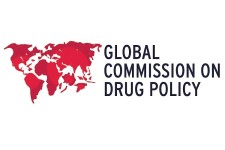Global Commission on Drug Policy (GCDP)

The Global Commission on Drug Policy was created in January 2011 by a group of personalities from the Americas and Europe, including former Heads of State and Government wishing to inspire better drug policy globally. Over almost 10 years now, membership grew to encompass Commissioners from around the world. Global leaders from the political, economic and cultural arenas, aware of the failure of the current drug control regime, felt that they must advocate for drug policies based on scientific evidence, human rights, public health, and security, leaving no-one behind.
Findings
The Global Commission’s first report broke the taboo on the negative consequences of the so-called “war on drugs” and called for a paradigm shift: priority must be given to health and safety, allowing for measures that truly help people and communities. Subsequent reports published in 2012, 2013 and 2015 explored in greater depth how the punitive approach to drugs and the criminalization of people who use drugs are responsible for the spreading of HIV/AIDS and hepatitis C, as well as for the lack of access to palliative care, pain medication, and other controlled essential medicines.
In 2014, the Global Commission developed five pathways for reforming drug policies:
- Prioritizing public health;
- Ensuring access to controlled medicines;
- Decriminalizing personal use and possession;
- Relying on alternatives to punishment for non-violent, low-level actors in illicit drug markets, and promoting longer-term socio-economic development efforts to offer them a legitimate exit strategy;
- Regulating the drug markets, and rolling back organized crime and its corruptive and violent influence.
The pathways provide a roadmap for an essential pragmatic policy change: the consensus on which the international drug control regime was established more than 50 years ago is broken. A growing number of national or local authorities are moving away from a prohibitive attitude towards drugs and experimenting with different ways of managing their presence in society. These include decriminalization of people who use drugs, and implementing harm reduction interventions and a large spectrum of therapies (2016); policies based on evidence, not ideology, countering the prejudices about drugs and the people who use them (2017); envision the legal regulation of various substances (2018); the problems posed by substance scheduling (2019); and actual law enforcement by fighting organized crime (2020).
- NGO, CSO or association
- Other health field concerned
- Policy brief or recommendation of good practices
- Mainly international

